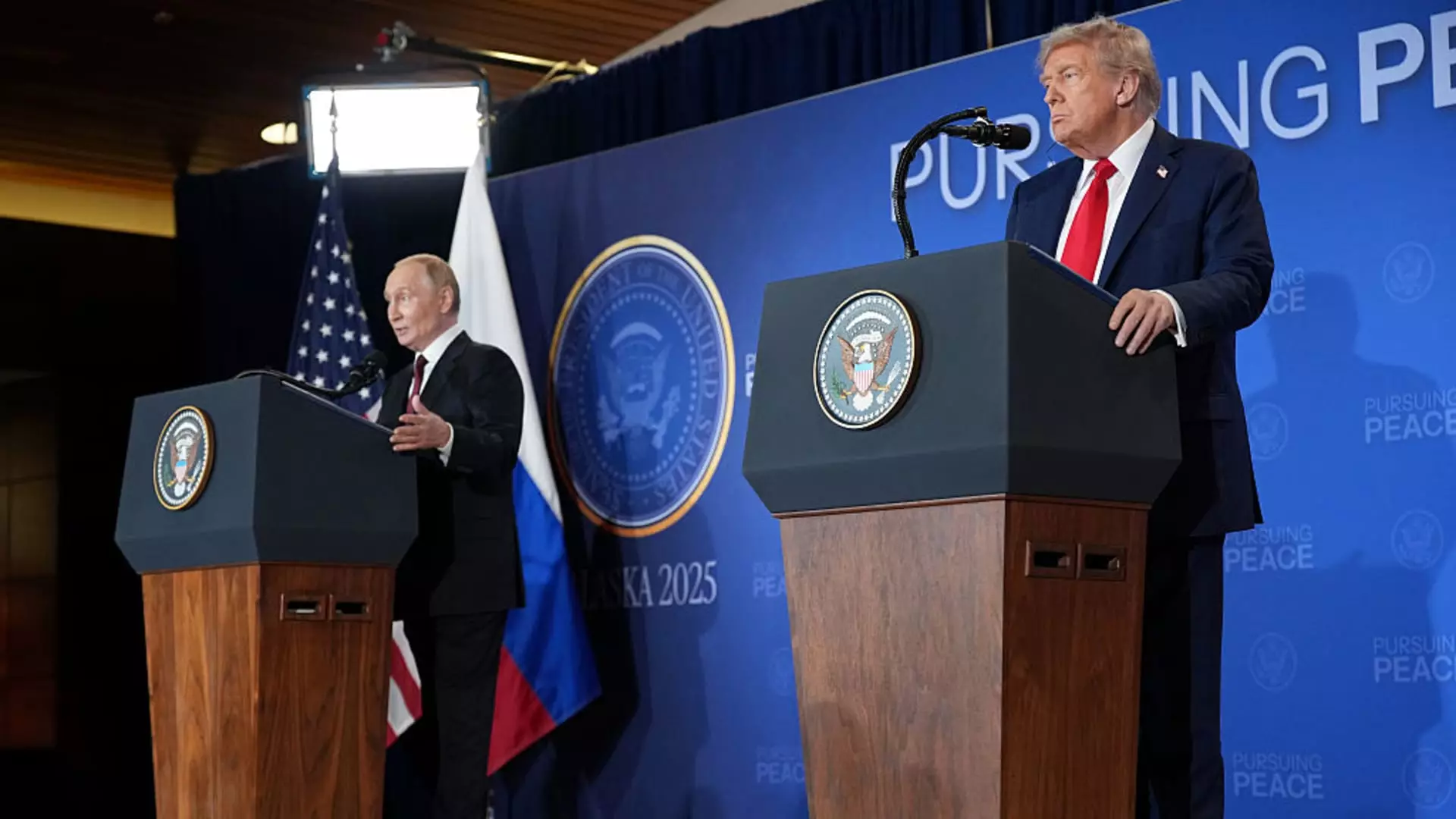The recent summit between Donald Trump and Vladimir Putin exemplifies the peril of superficial diplomacy in the face of complex geopolitical crises. While Trump described their meeting as “very well,” the reality reveals a disturbing disconnect between rhetoric and tangible progress. His insistence that only a “Peace Agreement” rather than a mere ceasefire will end the Ukraine conflict simplifies a deeply complicated situation. It’s a naive and overly optimistic stance that naively assumes diplomacy alone can rapidly resolve such entrenched conflicts, underestimating the destructive realities on the ground and the interests fueling ongoing violence. This perspective risks offering false reassurance to those suffering in Ukraine and emboldening Russia’s expansionist ambitions, all while Western allies push for immediate, pragmatic ceasefire negotiations.
Diplomacy or Dangerous Ambiguity?
The European leaders’ reaction underscores the risks of Trump’s approach. By sidestepping Ukraine’s direct involvement in the talks and emphasizing a broad peace agreement, Trump appears more intent on appeasing Moscow than considering Ukraine’s sovereignty and the urgency for a sustainable ceasefire. Their call for Ukrainian representation shows a recognition that peace must be driven by those most affected—yet Trump’s focus on a broad agreement threatens to sideline Ukrainian voices and concerns. This wavering stance reveals a misguided belief that swift diplomatic deals can replace the necessary, grassroots-driven process of healing and rebuilding trust—all while Russia exploits the limbo to continue its military advances.
Strategic Miscalculations and Contested Outcomes
Trump’s openness to dialog with Putin and his expressed optimism about the summit ignore the brutal realities of the conflict. Russia’s signals of victory, and their push for a new security architecture that sidelines Ukraine, indicate that the summit may have tilted too far in favor of Kremlin interests. Instead of holding Russia accountable, these talks risk rewarding aggression with vague promises and failed diplomacy. The lack of a firm stance from the West leaves Ukraine vulnerable to continued warfare, and the threat of escalation grows. Such policies undermine the legitimacy of international efforts to uphold democratic values and territorial integrity, making future resolutions more elusive.
Questioning the Assumptions of “Diplomatic Success”
Ultimately, the summit exposes the flawed assumption that diplomacy alone can resolve conflicts as intractable as Ukraine’s. While dialogue is essential, it cannot replace the need for concrete actions—supporting Ukraine militarily, imposing targeted sanctions, and insisting for accountability from Russia. Trump’s narrative, focusing on an obscure “necessary” new security process, hints at a dangerous complacency: believing that international agreements can be fashioned without clear commitments or enforceable terms. True peace requires balancing dialogue with strategic, principled resistance against aggression—an approach missing from the current discussions.
The Reality We Must Confront
The international community cannot afford to indulge in American political theater. As influential figures like Trump flirt with vague promises, the real victims—Ukrainian civilians—pay the price. We must recognize that effective diplomacy must be rooted in unwavering support for sovereignty, accountability for violence, and an insistence that lasting peace is built on justice, not fleeting agreements. Anything less risks prolonging a war that has already caused far too much suffering.


Leave a Reply